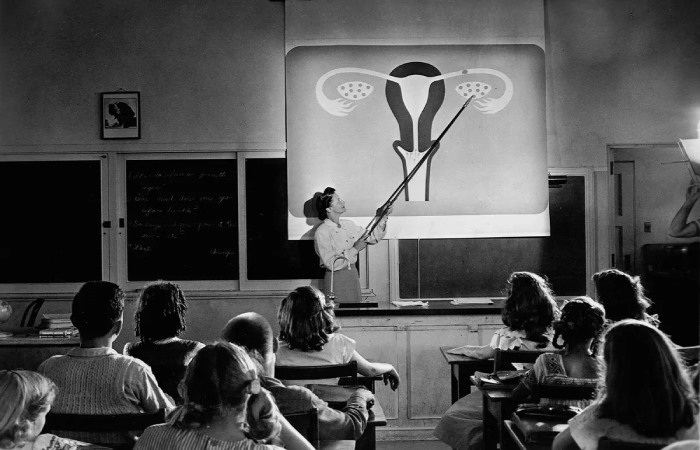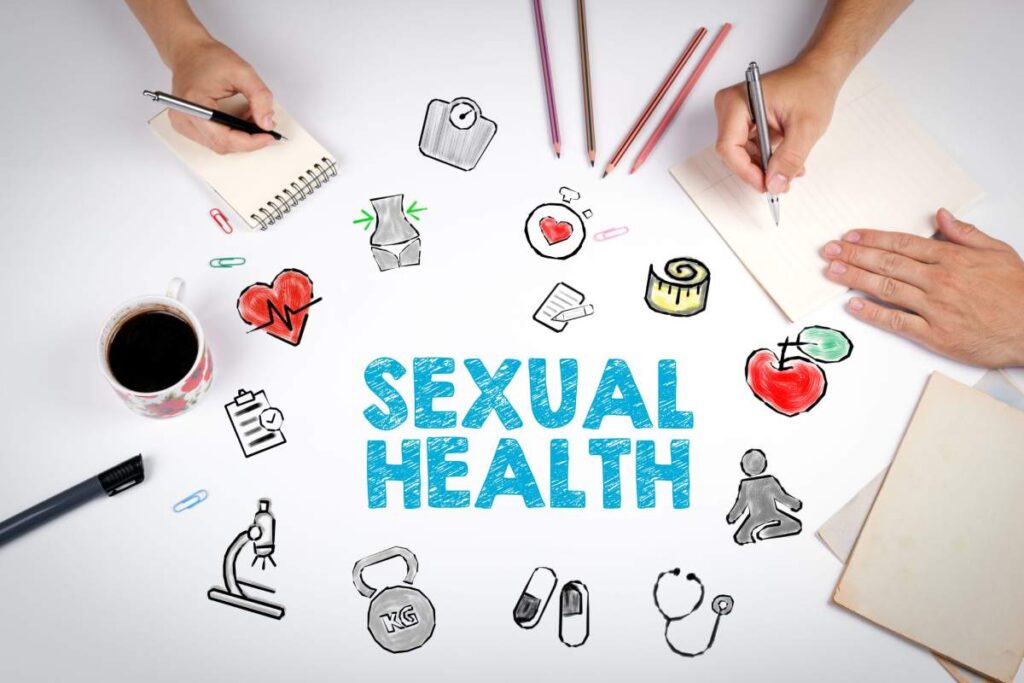A recent Forbes headline reads sex education, “90% of American Adults Feel Unprepared for Sex Ed.” Sounds like an exaggeration. Unfortunately, research continues to prove it year after year.
As of this writing, 79 laws have been passed in 2023 to address sex education requirements.
While some sought to improve the current state of youth sex education, most were designed to limit teens’ access to accurate, further affirming health information and necessary health services.
Few states agree on what role, if any, the school system should play in the sexual and reproductive development of our nation’s youth.
Far fewer people seem to understand that this leaves entire generations of people ignorant of how their bodies work, unsure of how best to keep them healthy, and unable to classify unsafe situations or violations of independence.
Individual states and school districts can set their curriculum.

Although 38 states and Washington, D.C. need some degree of sex or HIV-specific education, only 18 states require that this information be medically accurate.
When teaching sex education, 29 states require that the teacher teach abstinence. Nineteen states require that educators emphasize the importance of waiting to have sex before marriage.
Only 10 states and the Region of Columbia require that teachers provide inclusive information about sexual orientation. In comparison, 4 states require that teachers provide only negative information about homosexuality and positively emphasize heterosexuality.
At least one state explicitly prohibits teaching about gender identity, gender expression, or sexual orientation.
Just over half of all teens surveyed reported receiving sex education between 2015 and 2019, which met the minimum standard set by the U.S. Department of Health and Human Facilities’ Healthy People 2030 initiative.
The initiative includes Trusted Source goals for formal teen sex education that focus on delaying sex, contraceptive use, and preventing HIV and other sexually conveyed infections (STIs).
Less than half of all teens plotted who reported having penile-vaginal intercourse had received any of the above sex education information before their first sexual intercourse.
The consequences of inadequate sex education for teens extend into adulthood.
Hormonal health company Mira recently surveyed more than 1,500 Americans ages 18 to 44 about their experiences.
The vast majority of respondents reported feeling unprepared for their first sexual experience, with men (47%) and women (42%) participating at similar rates.
Participants felt equally unprepared (41%) to communicate with their sexual partners.
The results can be disastrous if there is a lack of information about healthy relationships (40% of participants said they received no information about consent or respect).
And it doesn’t seem like other countries are faring any better.
LetsStopAIDS, a youth-focused charity raising awareness about HIV, surveyed 1,090 Canadians aged 18-24 in May 2023.
Although participants felt the sex education class provided them with a wealth of scientific information, the majority (63%) still felt unprepared.
Young Canadians said the curriculum lacks practical knowledge or skills that can be applied in real life.
For example, while they learned about STIs, they didn’t know about safer sex practices that would help reduce the risk of infection.
Some suggested that their sex education experiences were negatively impacted by personal feelings of discomfort or lack of teacher education, leading to classes focusing on abstinence.
Similar concerns were seen abroad.
During the 2021-2022 academic year, researchers surveyed 293 students at the Faculty of Education Sciences at the University of Granada in Spain. Participants’ ages ranged from 18 to 49.
They found that the vast majority of students received poor sex education, and respondents believed that teachers themselves did not receive adequate or standardized education about sexuality.
The current curriculum does not reflect the diverse needs of today’s students.

A 2018 survey by CalExotics, a California-based pleasure products manufacturer,
found that 20% of the 426 adults surveyed had never taken a formal sex education class in their lives.
The results also showed that adults across three generations received the same sex education. Respondents ages 18-29 and 45-60 identified abstinence, pregnancy, STIs, and contraception as the top topics of discussion.
While these are important aspects of sexual and reproductive health, they are reasonably limited in scope.
92% of respondents shared that they had never formally studied:
- how to have sex
- local sexual health capitals
- gender identity
- sexual orientation
- same-sex relations and sexuality
- foreplay
- interracial relationships
- sex toys
In other words, the current standard for a sex education prospectus (and that’s assuming sex education exists)
hasn’t kept pace with our changing understanding of sex, sexuality, and relationships.
It’s time to set a new standard for sex education.
We want to be your greatest ally in your quest for health and wellness, including your sexual and reproductive health.
Consider this an invitation to leave any unhelpful or unwanted messages you’ve received about sex and sexuality at the door.
Here at Healthline, we believe people have the right to decide what they do (and don’t) with their bodies.
We encourage you to develop your understanding of what sex and sexuality mean to your unique body and experience.
Our updated sexual health center covers sexual development, physical intimacy, romantic relationships, and more.
Have something else on your mind? Our new LGBTQIA+ health center has everything you need to learn more about your relationship to gender, sexuality, and more.


